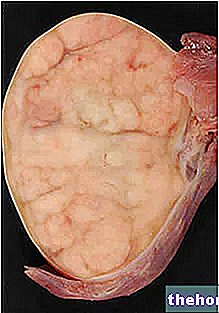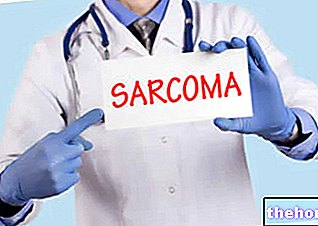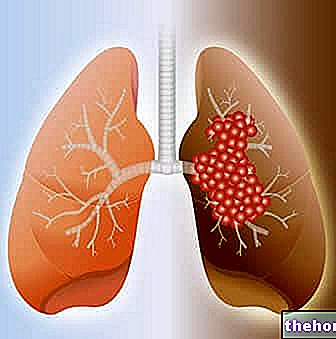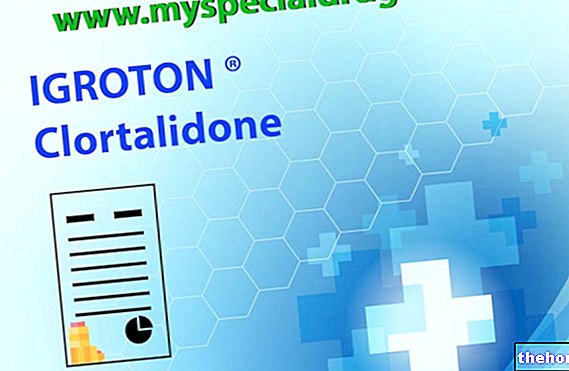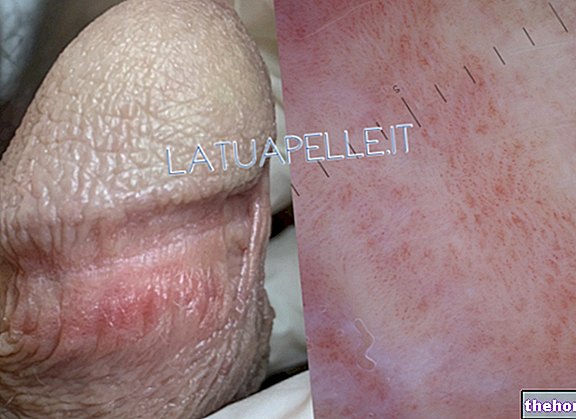Generality
Immunotherapy is a method for treating pathologies based on the use of substances that act on the immune system.

- Suppression immunotherapy: when you want to depress the immune system response. Suppression immunotherapy is used, for example, for the treatment of allergies, in which there is a "hypersensitivity of the organism to certain external agents (antigens). The purpose of immunotherapy, in this case, is to limit the excessive immune reaction that is triggered in response to contact with the antigen; in this way a desensitization of the organism towards the agents triggering the allergy is obtained.
Other circumstances that make suppression immunotherapy appropriate include organ transplants, to prevent rejection, and the treatment of autoimmune diseases. - Activation immunotherapy: in this case, the aim of immunotherapy is to induce or amplify an immune response. This is the case of antimicrobial immunotherapy - including vaccines against infectious agents - e of oncological immunotherapy, ie immunotherapy used in the treatment of tumors.
Activation immunotherapy can also be used in the case of immunodeficiency, caused by pathologies (for example, AIDS) or of iatrogenic origin (side effect of other treatments, such as chemotherapy or radiotherapy).
Oncological immunotherapy
Cancer immunotherapy uses the immune system to treat cancer.
The cells of our body expose on their surface molecules of different nature, such as proteins and carbohydrates.
Malignant cells - as a consequence of the mutations that led to the development of the tumor - expose, on their surface, molecules different from those exposed by healthy cells. These molecules are called tumor antigens. Cancer immunotherapy exploits this phenomenon: the cells of the immune system may be able to detect tumor antigens and attack the diseased cells that expose them.
Cancer immunotherapy can be divided into three main groups:
- cell therapy;
- antibody therapy;
- cytokine therapy.
Cell therapy
Cell therapy involves the administration of so-called cancer vaccines. Usually, immune cells are taken from cancer patients, both from the bloodstream and from the tumor itself. Once collected, the immune cells are activated to specifically recognize tumor cells, then cultured in vitro and finally returned to the patient. In this way, once back in the body, the tumor-specific immune cells should be able to identify and attack it.
The types of immune cells that can be used in cellular immunotherapy are the dendritic cells, the natural killer cells, i cytotoxic T lymphocytes and the lymphokine-activated killer cells.
To date (April 2015), only one cellular immunotherapy vaccine has been approved against cancer in Europe; the drug is called Provenge ® and is used in the treatment of advanced prostate cancer. Many other vaccines are in the research and study phase, while some are already in advanced clinical trials.
Antibody therapy
Antibody immunotherapy is undoubtedly a consolidated and widespread therapy for the treatment of tumors.
Antibodies are proteins with a particular "Y" -shaped structure, which originate from cells of the immune system called plasma cells. In correspondence of the short arms of the "Y" there are specific areas capable of recognizing numerous types of antigens. When an antibody recognizes an antigen, they interact with each other by some sort of mechanism.key-lock". In particular, it can be said that each antibody has a" lock "(placed on the short arms of the" Y ") which corresponds to a specific" key "(antigen). When the antigen-antibody interaction occurs - therefore when the key is "inserted" - the antibody activates, initiating the cascade of biochemical signals that leads to the body's immune response.
Under normal physiological conditions, the antibodies of the immune system are mainly used for the recognition of pathogenic microorganisms. There are, however, antibodies that can recognize tumor antigens and therefore can be used in the treatment of tumors.
In antibody immunotherapy, the monoclonal antibodies (mAb), so called because they are clones from cell lines derived from a "single immune cell.
Once the "antigen of interest" has been identified, it is possible to create - thanks to special techniques - monoclonal antibodies that are specific for that "antigen.
Below are some of the monoclonal antibodies used for cancer treatment.
- Alemtuzumab, administered intravenously, is used for the treatment of chronic lymphocytic leukemia.
- Bevacizumab, used in combination with other anticancer agents to treat metastatic colorectal cancer, advanced or metastatic lung cancer, metastatic breast cancer and advanced or metastatic kidney cancer. It is administered intravenously.
- Cetuximab, administered by intravenous infusion, is used in the treatment of metastatic cancers of the colon and rectum and head and neck cancers.
- Ibritumomab tiuxetan (Zevalin ®), this monoclonal antibody is conjugated with the radioactive isotope yttrium 90. It therefore combines the activity of the antibody with that of the γ rays produced by the radioisotope. It was the first agent to become part of the radioimmunotherapy. It is used in the treatment of non-Hodgkin's lymphomas and is administered intravenously.
- Ipilimumab, used in the treatment of advanced melanomas, given by drip infusion into a vein.
- Panitumumab, is administered intravenously and is used in the treatment of metastatic colorectal cancer.
- Rituximab, used in the treatment of non-Hodgkin's lymphoma and chronic lymphocytic leukemia; it is also used for the treatment of rheumatoid arthritis. It is administered by intravenous infusion.
- Trastuzumab, used for the treatment of breast cancer; it is found as a powder that is solubilized for administration by intravenous infusion.
Cytokine therapies
Cytokines are polypeptide mediators, that is, they are proteins responsible for communication between the various cells that make up the immune system, and between immune cells and other tissues and organs.
Some cytokines are produced by cells of the immune system and can be used in "cancer immunotherapy, such as"interleukin-2 and the "interferon-α.
L"interleukin-2 it is used in the treatment of melanoma, kidney cancer and acute myeloid leukemia.
L"interferon-α it is used for the treatment of hairy cell leukemia, chronic myeloid leukemia, multiple myeloma, follicular lymphoma and melanoma.
Side effects
The side effects that can be caused by immunotherapy are due to the overactivity of the immune system. In fact, it can happen that the immune system attacks, not only the diseased cells, but also the healthy ones because it is no longer able to recognize them as such.
Side effects, however, can vary depending on the type of immunotherapy and the drug being administered. The most common effects can be:
- Tiredness;
- Itching and redness;
- Nausea and vomit;
- Diarrhea;
- Colitis;
- Increase in transaminases (enzymes present in the body which are often used as an index to identify the presence of liver damage);
- Impaired functioning of endocrine glands, especially thyroid and pituitary glands.
Despite the side effects that can occur, the strong point of immunotherapy is that it does not use drugs that directly affect cancer cells, but instead uses molecules and cells of the immune system that are naturally part of the body.
Lymphocytes (the cells that make up the immune system) can selectively attack malignant cells, significantly reducing the tumor mass. Immunotherapy could make it possible to cure inoperable tumors and thus increase median survival.
Precisely because of the hopes it offers, studies and clinical trials are underway that use immunotherapy for the treatment of numerous types of tumors.



